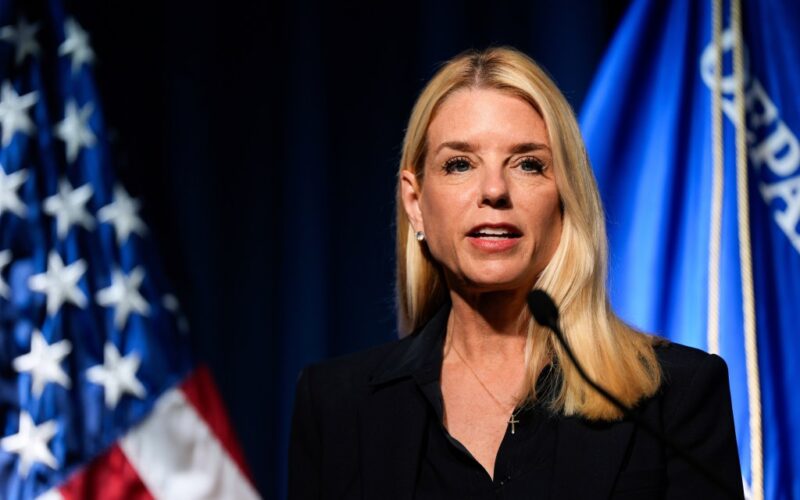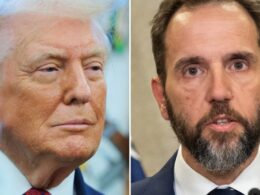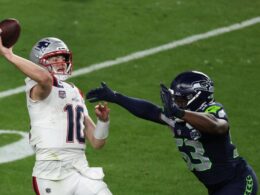To great fanfare, U.S. Attorney General Pam Bondi has asked federal courts in New York and Florida to unseal the grand jury transcripts “associated with the” indictments of Jeffrey Epstein and his partner in crime, Ghislaine Maxwell.
Bondi asserts that the public should have these transcripts in the interests of “transparency” to promote the “public interest in the investigative work conducted by the Department of Justice and the Federal Bureau of Investigation.”
This justification is a big sham designed to distract the public from the DOJ and FBI investigative files and a Florida judge has already said no. But even if the grand jury transcripts were published, it is highly unlikely they will provide the public with new significant facts.
I know because as an assistant special Watergate prosecutor and a Manhattan assistant U.S. attorney, I conducted hundreds of grand jury proceedings and am familiar with the process.
For starters, the entire investigative file created by the DOJ and the FBI is seldom ever presented to the grand jury. The FBI provides the report of the results of its investigation with interview summaries to the assistant U.S. attorneys. They decide whether there is sufficient evidence to present to a grand jury to seek an indictment that can result in a jury conviction.
Based on the FBI report, the prosecutor may conduct further investigation, such as subpoenaing new documents and interviewing witnesses interviewed by the FBI and others not interviewed by the FBI. The prosecutor may or may not provide the results of that investigation to the grand jury. If the court releases the transcripts, those investigative notes and memoranda will remain in the files of the U.S. attorney’s office.
The prosecutor decides what evidence to present to the grand jury, including who testifies. While the evidence may reveal multiple criminal actors, the government has no obligation to present all available incriminating evidence to the grand jury. There may have well been others associated with Epstein and Maxwell who violated federal criminal law. However, the grand juries which returned indictments on Epstein and Maxwell were likely focused solely on those two individuals.
As such, the prosecutors shape and limit the evidence the grand jury considers. For example, the prosecutor does not usually ask key witnesses to relate to the grand jury everything they know about the matter at hand. The prosecutor is normally careful to have the witness restrict testimony to the key points supporting the charges, without expounding on added details and context that the prosecutor may later elicit at trial.
The prosecutor takes specific steps in the grand jury to guard against defense lawyers at trial attacking the witnesses’ credibility when the witness testifies to facts at trial that were not related to the grand jury. The prosecutor regularly concludes a key witness’ grand jury testimony by asking the witness if he has testified to everything within his knowledge about the facts of the case. The witness confirms he did not. This sets up the witness to later provide more particulars at trial without fear of the defense cross-examining the witness for omitting facts to the grand jury.
Thus, whatever grand jury testimony is released may not reflect the witness’ full knowledge of Epstein’s misdeeds.
The prosecutor is also under no obligation to present to the grand jury every incriminating document uncovered in the investigation. For example, the leather-bound book reported by the Wall Street Journal with the “bawdy” letter from Donald Trump to Epstein for his 50th birthday was likely not shown to the grand jury. This does mean that the prosecutors may have viewed it during their investigation or that the book is in DOJ or FBI files. The same goes for the Epstein client list that was supposedly “sitting on” Bondi’s desk for her “to review.”
Any transcripts most certainly will not reveal what is in the Epstein DOJ or FBI “files,” his client list, his personal documents and financial records gathered in the investigation or the complete identities of his co-conspirators besides Maxwell.
In sum, DOJ’s motions to release the grand jury transcripts is nothing more than a distraction and a continuation of the Epstein coverup, whom Bondi acknowledges is “the most infamous pedophile in American history.” Indeed, these motions will amount to pure grandstanding if the courts refuse to release the transcripts consistent with well-established law protecting grand jury secrecy.
Akerman was formerly an assistant special Watergate prosecutor and an assistant U.S. attorney for the Southern District of New York.








